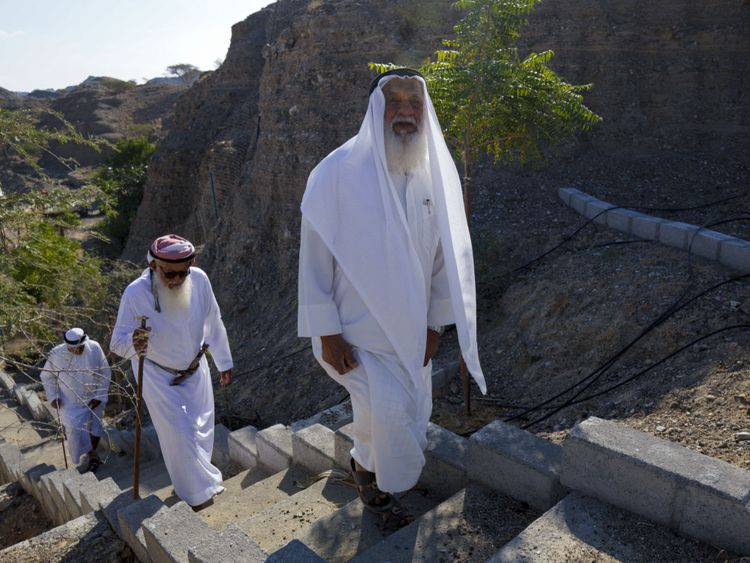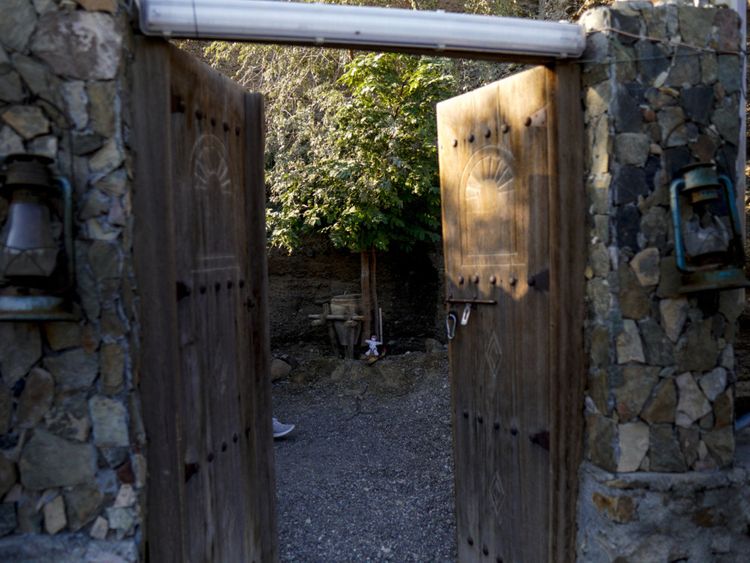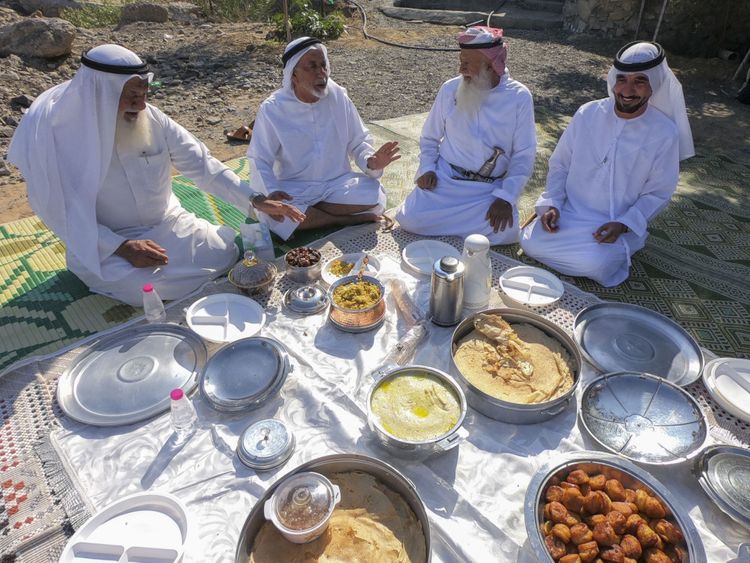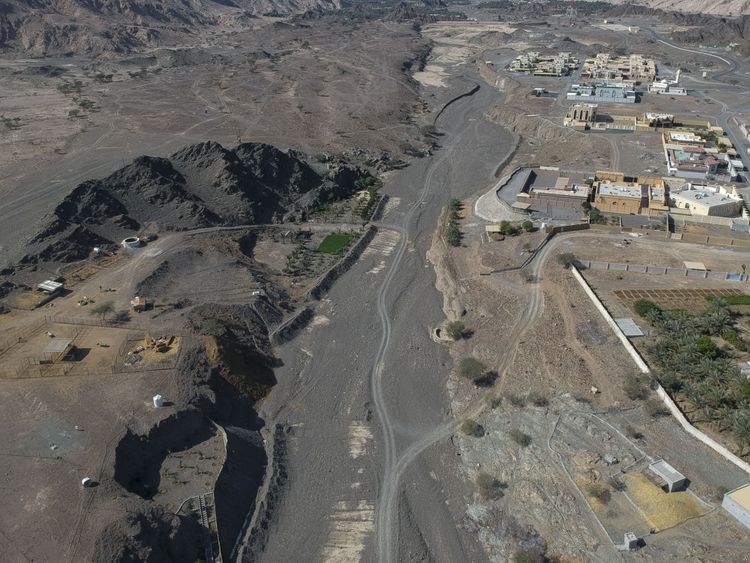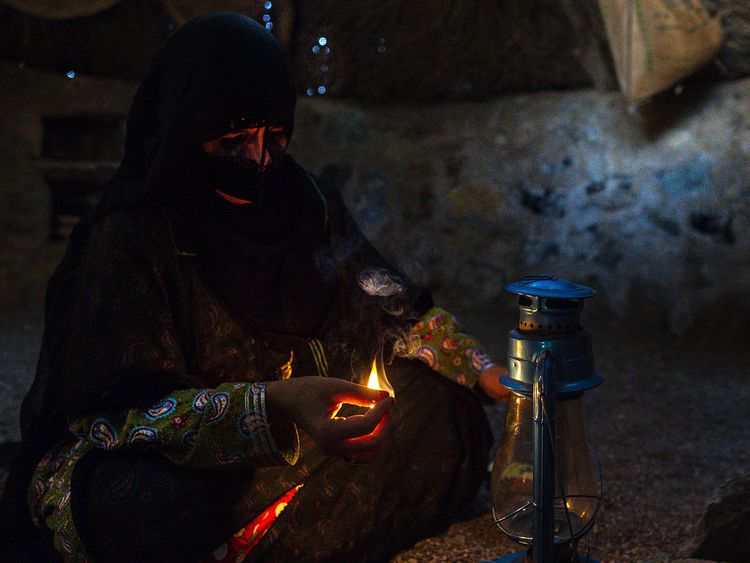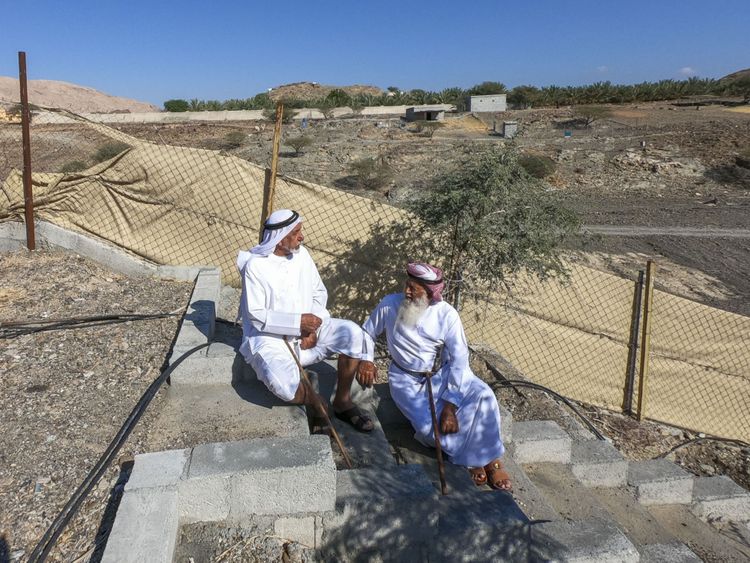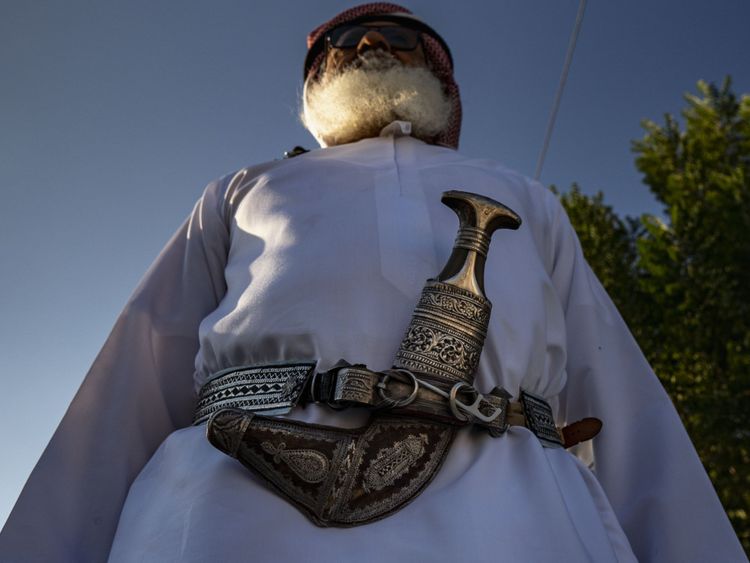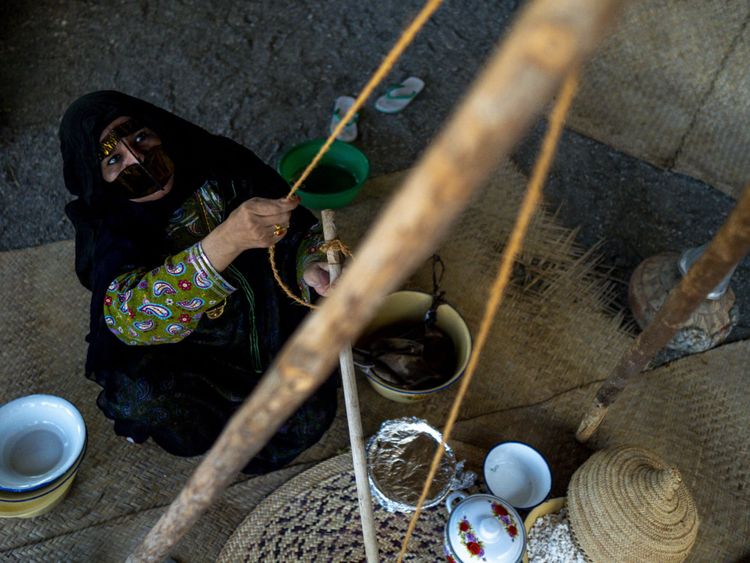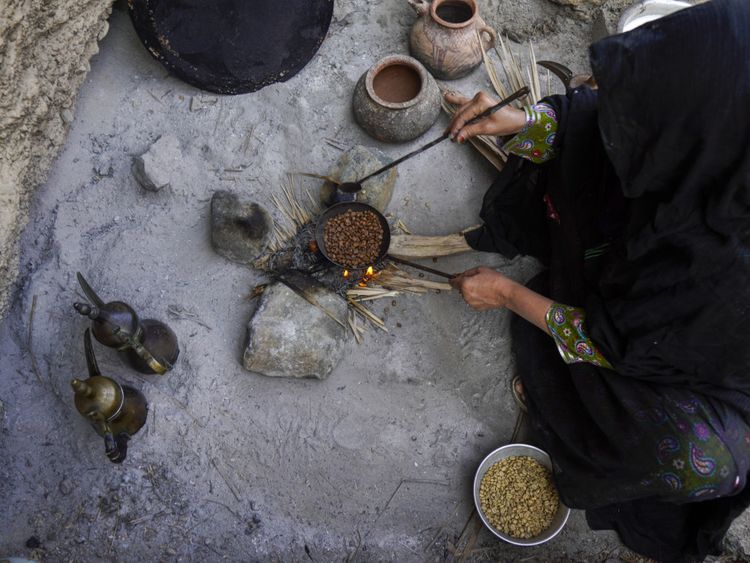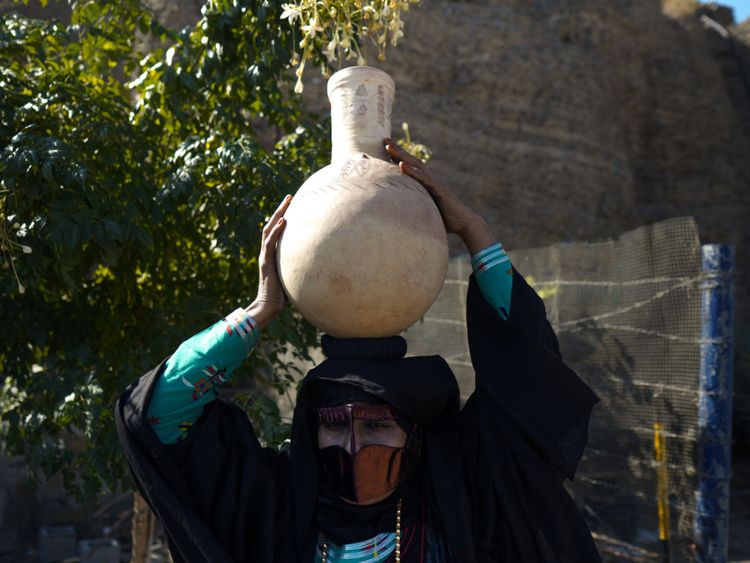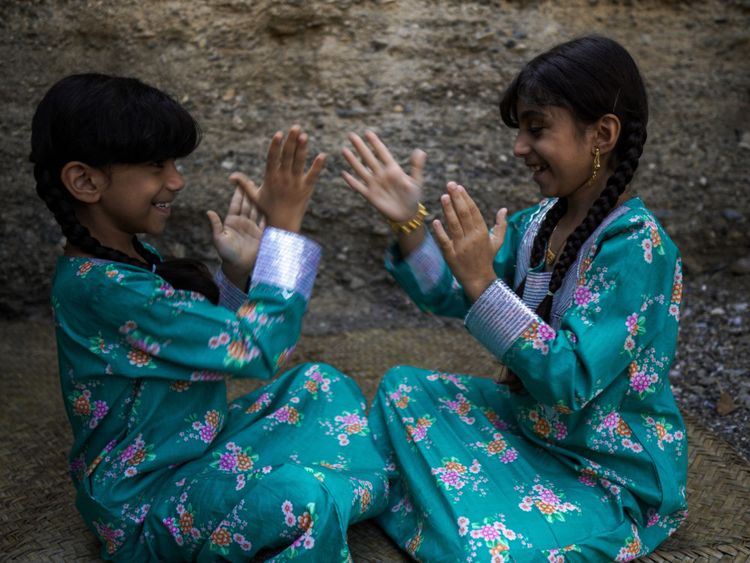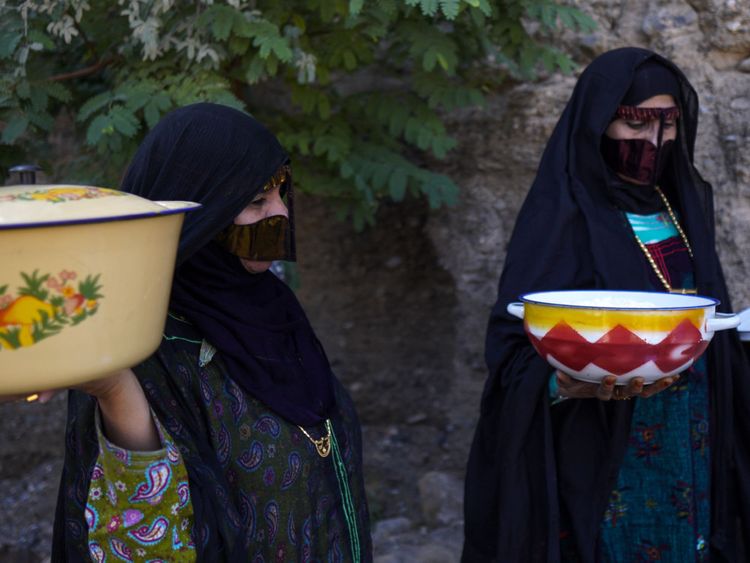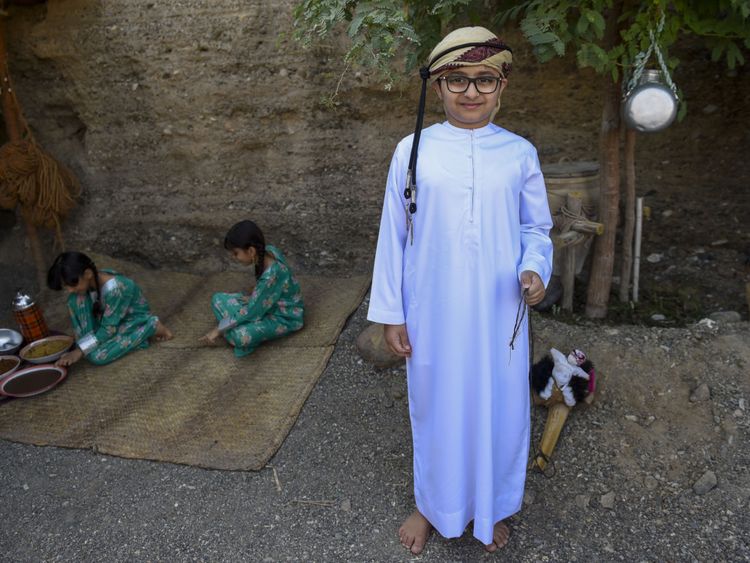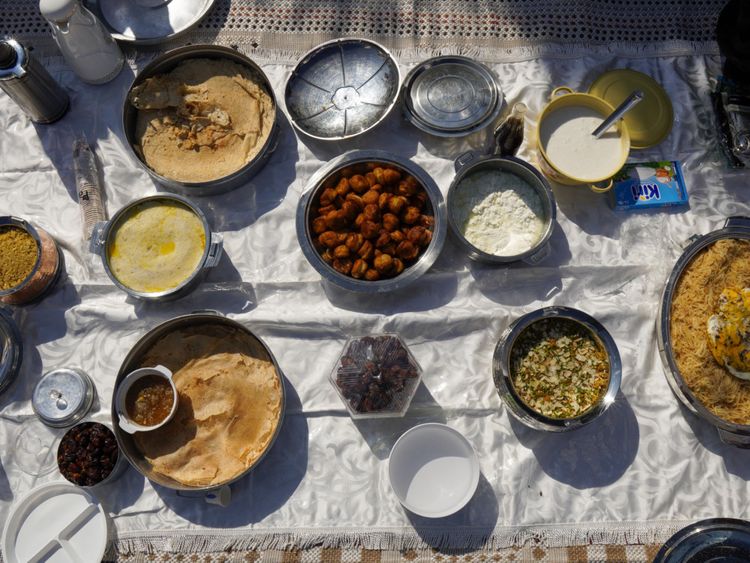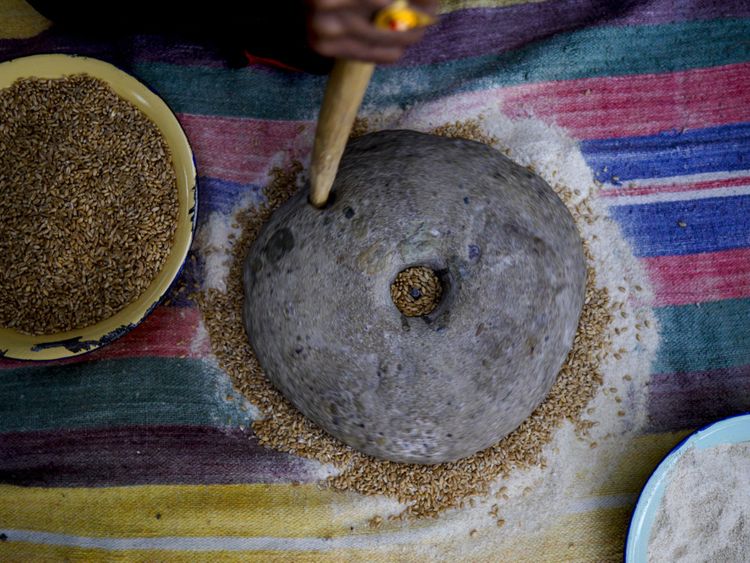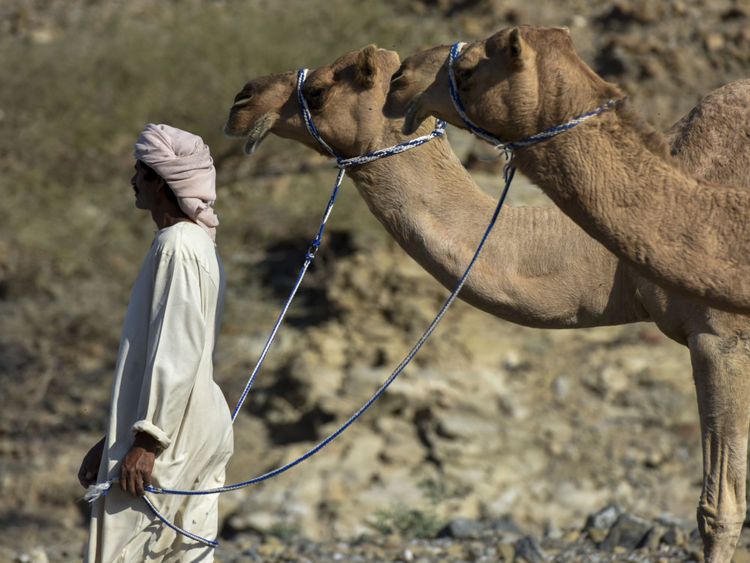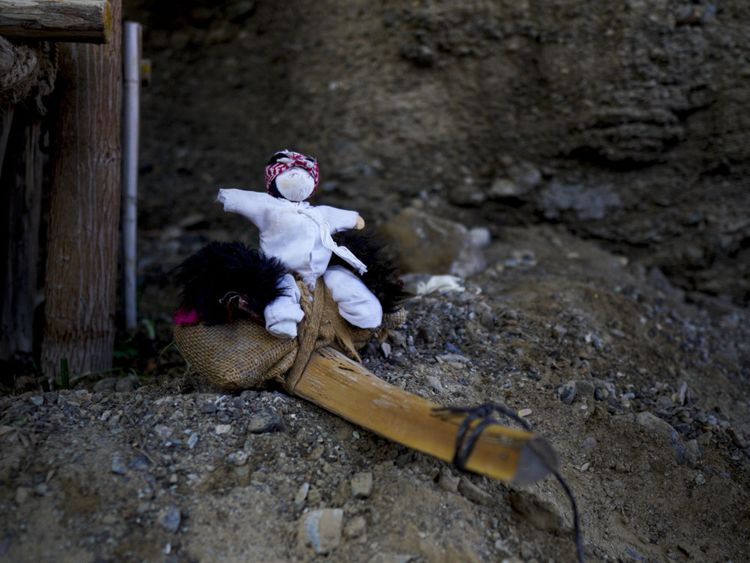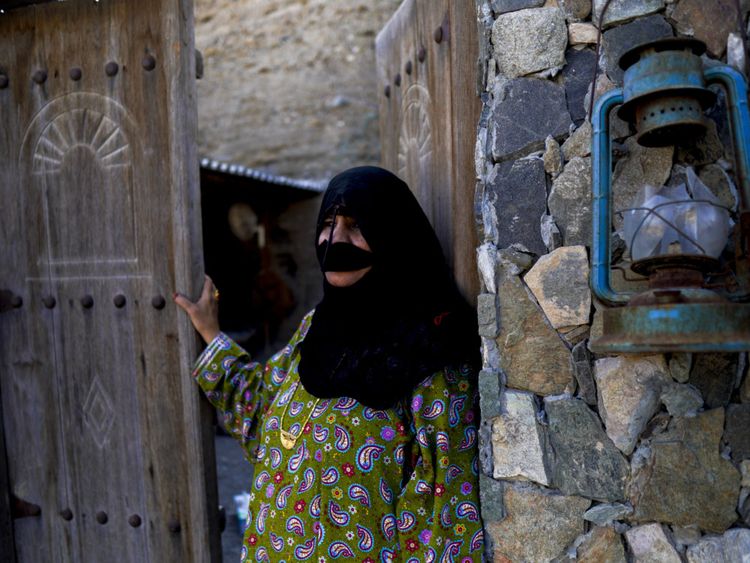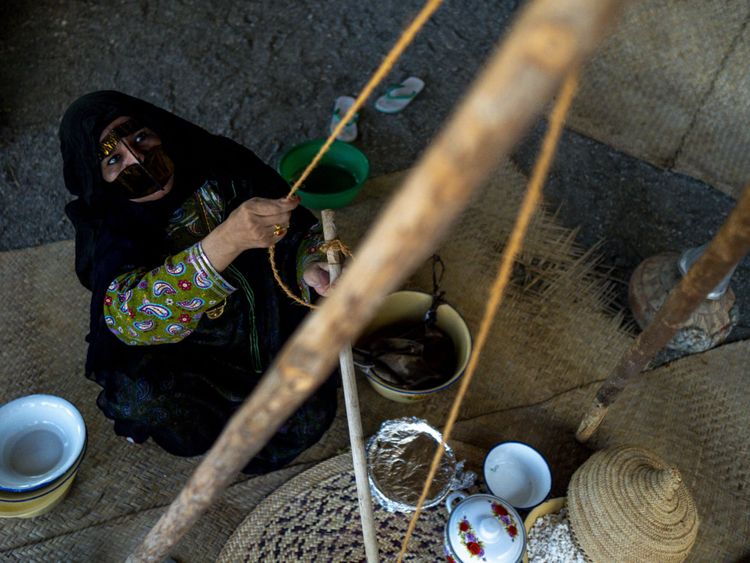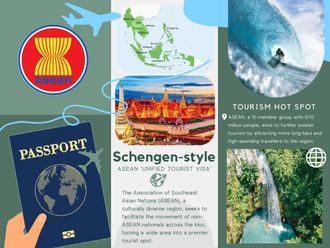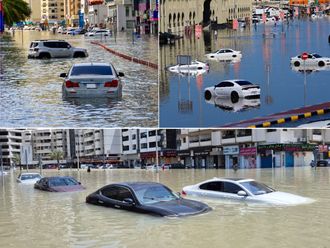Ras Al Khaimah: The cold weather in the UAE’s Adhen village gave chills to Rashid as he walked for a kilometre outside his modern villa to his ancestors’ old house. The sound of his walking stick on the stones created a symphony of sorts with the chirping of birds and the livestock around as he waved at them, before his three elderly friends joined him in the walk towards a long-forgotten spot.
It was early hours of the morning as the leader of Emirati’s Al Mazari tribe and his friends reached the traditional Emirati house on the edge of a small mountain in Wadi Al Aim area in Ras Al Khaimah.
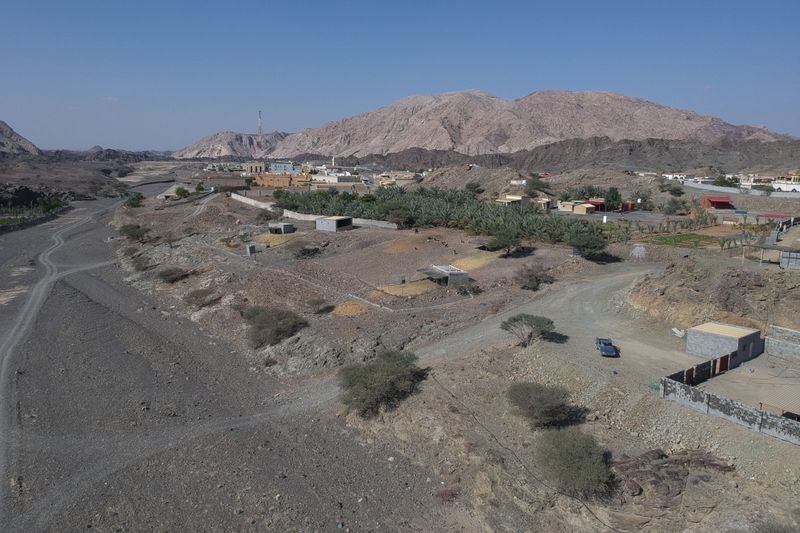
The sky was clear as the sun light gently touched a tent made of mud brick, dry stone, wood and thatch.
Amir of Al Mazari (singular Al Mazroui tribe; Amir also stands for leader) opened the wooden door to enter the second section of the house called ‘Arish’ — a shaded shelter used by the Bedouin during the hot summer months. “A tent used in the winter to protect people from the cold weather, ‘Arish’ was our shelter in the summer where a family used to sit and have food,” Rashid said. “This is a traditional Emirati house that still exists, even after all these days. Our tribe, living in a modern village nearby, had left their old houses.”
A big smile spread across Rashid’s face, making the wrinkles on his face even deeper, as he was pointed to the forgotten old house, while his friends sat on the mat to have their traditional Emirati breakfast. The four elderly persons had survived the hardships of a desert life before the discovery of oil and the establishment of UAE in the early 1970s, sat with Gulf News to share the story of an ambitious nation that is now busy exploring space.
Life in the UAE
The history of the UAE is diverse, brimming with tales of nomadic Arabs who once inhabited the region. Known for their unique lifestyle, they are an intrinsic part of the region and its heritage. They are famous for their sense of respect, hospitality and courage.
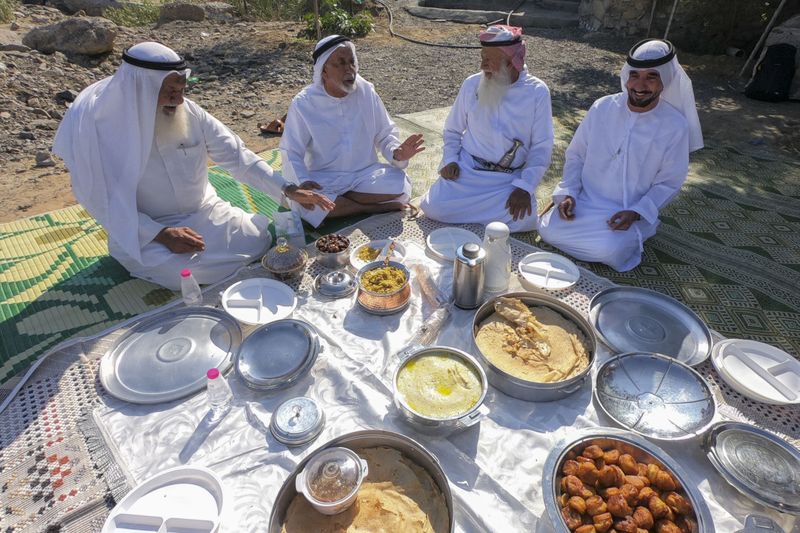
Life was hard, but people were happy. Some people used to do farming while others used to be lumberjacks who collected woods for two days to sell it for less than one rupee [the currency in use during those days]. In the past, around 10 rupees a month would be enough for a family to survive.
Rashid Al Mazroui, Amir of the tribe in Ras Al Khaimah, told Gulf News that his tribe lived for centuries in Wadi Al Aim and Wadi Al Ais. “Over centuries, we survived the scarcity of water and other resources, to create a life full of simple but beautiful traditions. Life was full of hardships for Emiratis in the harsh desert climates before the discovery of oil and the establishment of the Union in the early 1970s,” said Rashid Al Mazroui, who has two wives, eight sons, 13 daughters and many grandchildren. He pointed that there wasn’t even a marked road system to connect people who lived in the different emirates. People used camel or donkey to travel for several days to sell or buy goods in Sharjah, Dubai, Ras Al Khaimah and Abu Dhabi.
“Life was hard, but people were happy. Some people used to do farming while others used to be lumberjacks who collected woods for two days to sell it for less than one rupee [the currency in use during those days]. In the past, around 10 rupees a month would be enough for a family to survive,” Rashid Al Mazroui added. Families would share dates and bread because of the difficulties in having money to buy items of basic need. He recounts that when he was a young boy, he would travel to Dubai with his father to sell goods. “We were using donkeys to travel on a six-day trip to Dubai. My father used to go and visit Dubai’s Shaikhs who would give a piece of paper like a permit to collect bread, sugar, clothes, oil and coffee. Back then, Dubai helped many people with food and clothes,” said Rashid Al Mazroui.
Challenges for Emirati life
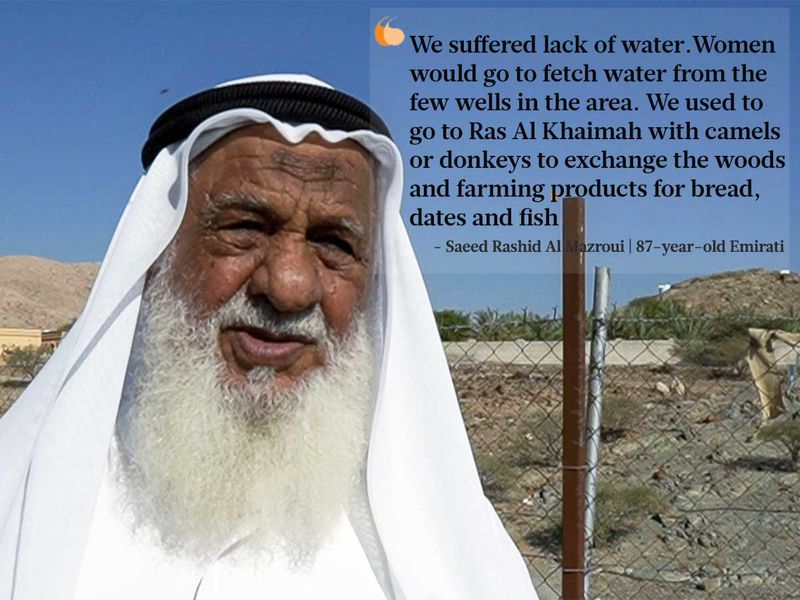
Despite the arid climate and limited resources, bedouins as they were sometimes referred to, led a peaceful and nomadic lifestyle in the UAE.
Saeed Rashid Al Mazroui, 87-year-old Emirati who own two farms and livestock in Adhen village said that he used to live with his mother in a traditional house in the past after his father divorced his mother.
From leading a camel cavalcade across the UAE to being a solider in the British Army in the 1960s, Saeed joined RAK Police and retired after 23 years in the force. “We suffered lack of water. Women would go to fetch water from the few wells in the area. We used to go to Ras Al Khaimah with camels or donkeys to exchange the woods and farming products for bread, dates and fish,” Saeed said.
Men used to work in the farms, collect wood and trade while women would cook, fetch water and look after the children. “People used to love each other and there wasn’t any conflict among the members of the village. Even in case of a fight it would take only a few minutes to resolve it,” he added.
Obaid bin Saeed Al Mazroui, 71, said that the First and Second World Wars had a negative impact on the economic life in the UAE. “The poverty started with the World Wars. There was not much work back then. People either worked as farmers in the handful of farms in the area or collected wood to sell them. We used to get dates from Basra in Iraq as it reached the villages close to the sea,” Obaid said.
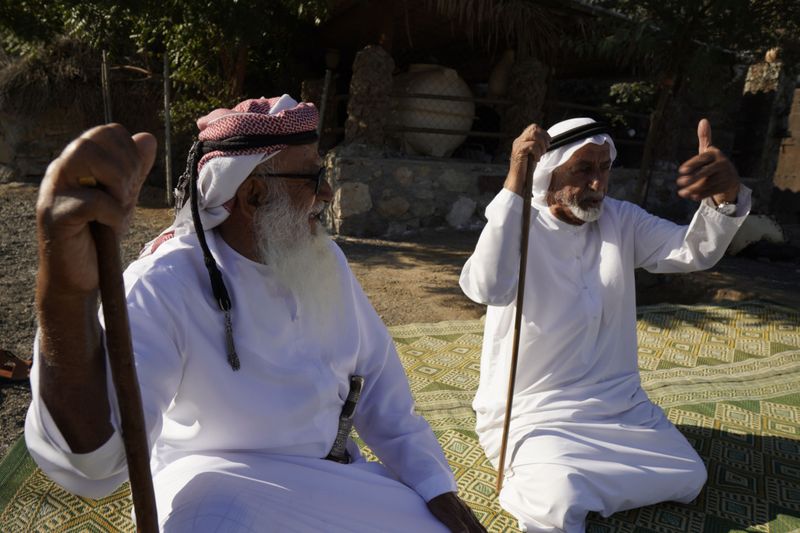
He still remembers the days when the date baskets would arrive in the village all the way from Ras Al Khaimah and the families would divide the dates equally between themselves. “Life was much simple back then and people would support each other to tide over the difficulties.”
How Emiratis in the past defended themselves
Obaid, who wore a long loose Arabic shirt with a long cartridge belt wrapped around the waist with a heavy silver-sheath dagger tucked in, said that tribes would gather at one place to defend themselves from enemy attacks. “We used to defend ourselves from enemies by carrying a dagger, sword and rifle. We defended our convoys from outlaws who would attack us for the goods and the food,” Obaid said. He added that his dagger belonged to his ancestors and it’s been used in his family for generations — all the way down to him. “I used the weapon to defend myself and my village. The dagger was a good weapon to keep attackers at bay. It was hard life back then, but things changed after the unification of the seven emirates. We started enjoying safety and security after the Union was formed,” he added.
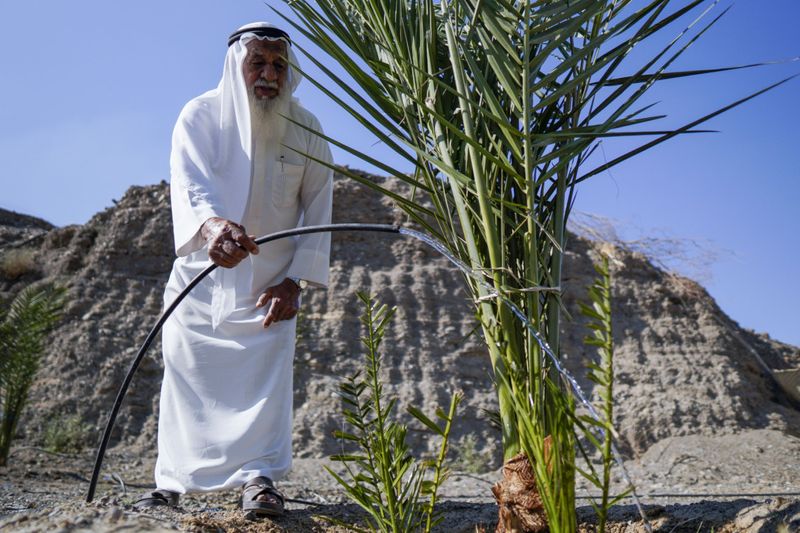
How life changed in the UAE in the middle of last century
In the early 1960s, oil was discovered in Abu Dhabi — an event that led to the unification calls made by UAE leaders in 1971. The UAE’s first president, late Shaikh Zayed Bin Sultan Al Nahyan, visited Adhen village one year after the Union was formed with a promise to bring goods to the land.
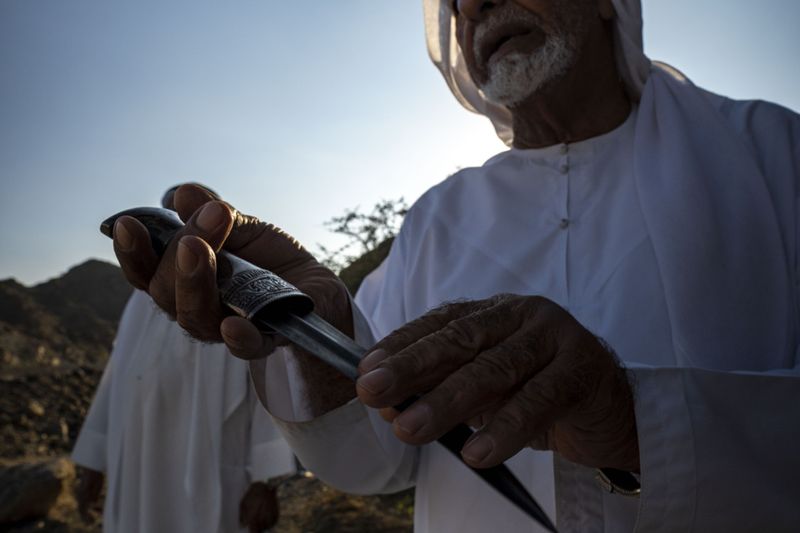
Ahmad Bin Salim Al Mazroui, a 62-year-old former colonel in the army, still remembers late Shaikh Zayed’s visit that transformed people’s lives for the better. “After the Union was formed, late Shaikh Zayed Bin Sultan Al Nahyan visited Adhen and ordered the establishment of more wells, roads and schools. I still remember when he said that ‘good things are coming’,” Ahmad Al Mazroui said. We didn’t have hospitals. Treatment was available through traditional herbs. Now medicine and treatment reach our doorsteps.”
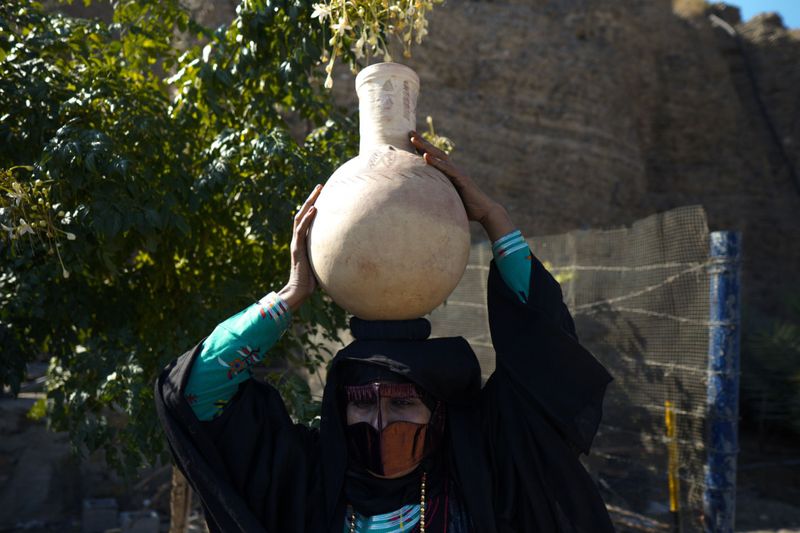
What was the source of news for Emiratis in the past?
With no phones, air planes and cars in the country to deliver news, Emiratis gained knowledge and kept themselves abreast of hear the news by attending the tribal ‘majlis’. The ‘majlis’ (council) has traditionally been an essential part of Emirati social and political life, serving as a forum for members of the community to discuss issues raise important matters with the elders and Shaikhs. Traditionally, elders and Shaikhs would host the ‘majlis’ to discuss daily affairs, relay news and narrate stories. All members of the community were entitled to attend these forums to voice their opinions on the topics for the day. It was constructive dialogue, defined by honesty, openness, freedom and ingenuity.
Food habits of Emiratis
62-year-old Emirati woman Umm Mariam said that her mother and grandmother used to primarily consume rice and food made from flour, while also relishing tea, nuts, dried fruit, dates and goat meat. “People used to cook food on the campfires. Women used to make both, thick as well as thin bread, to be served with dates and coffee — especially for breakfast,” said Umm Mariam. “Our mothers used to make butter and buttermilk by churning milk in a bag made of animal skin. Boiling the milk for long would produce a cheese-like substance called ‘Teget’.”
Young Emiratis’ gratitude to ancestors
The UAE has come a long way from being part of a nomadic culture to being a high-tech oil rich nation in just 50 years. By the time Gulf News completed its ‘journey’ down memory lane along with members of the Al Mazari tribe in Adhen village, there were young people passing by. A group of three teenagers greeted the elderly with respect and admiration.
You can surely say that amid the abundance of God’s bounties, the new generation of Emiratis is very much attuned to the sacrifices made by their forefathers who lived in this land and who secured the lives of the generations that followed after them.


